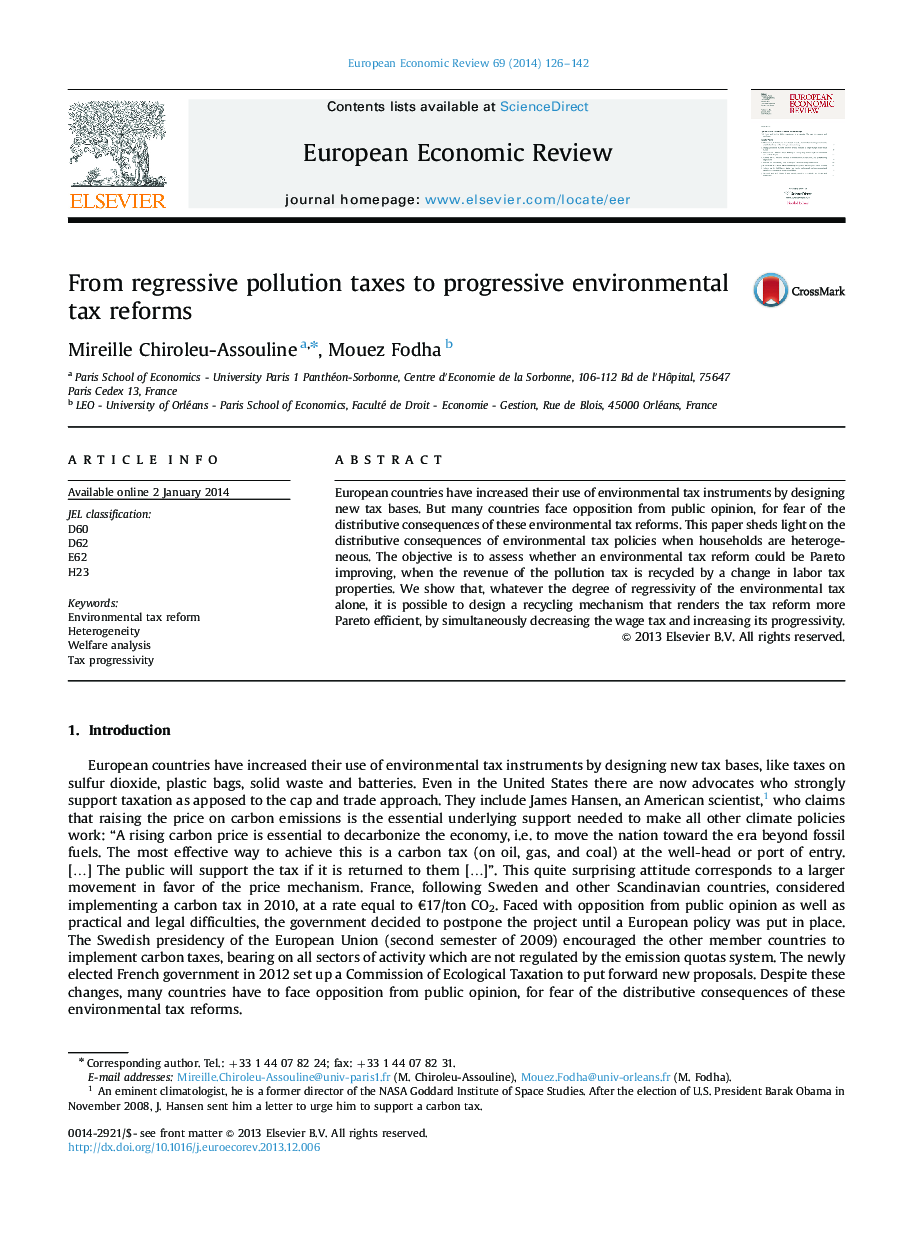| Article ID | Journal | Published Year | Pages | File Type |
|---|---|---|---|---|
| 5066820 | European Economic Review | 2014 | 17 Pages |
â¢We study the distributive consequences of environmental tax reforms on heterogeneous households.â¢Our objective is to design policies that ensure a non-decreasing welfare for all.â¢The fulfilling of this objective lies in the distributive properties of the preexisting labor tax.â¢We focus on budget neutral recycling of the environmental tax revenues by a decrease of labor taxes.â¢We combine a decrease in the average rate of the wage tax with an increase of its progressivity.
European countries have increased their use of environmental tax instruments by designing new tax bases. But many countries face opposition from public opinion, for fear of the distributive consequences of these environmental tax reforms. This paper sheds light on the distributive consequences of environmental tax policies when households are heterogeneous. The objective is to assess whether an environmental tax reform could be Pareto improving, when the revenue of the pollution tax is recycled by a change in labor tax properties. We show that, whatever the degree of regressivity of the environmental tax alone, it is possible to design a recycling mechanism that renders the tax reform more Pareto efficient, by simultaneously decreasing the wage tax and increasing its progressivity.
